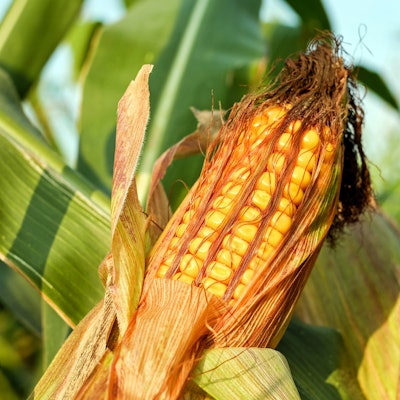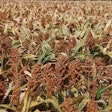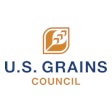
On Monday, the U.S. Trade Representative (USTR) requested technical consultations with Mexico under the Sanitary and Phytosanitary Measures (SPS) chapter of the United States-Mexico-Canada Agreement (USMCA), effectively challenging a ban that Mexico has placed on shipments of genetically modified (GM) corn from the U.S.
Last week, the U.S. warned it would U.S. consider "all options," including a formal trade dispute panel, unless Mexico addressed Washington's concerns over Mexico's plan to limit imports of genetically modified corn.
Mexico is one of the U.S.'s oldest and strongest trading partners with a trade relationship rooted in trust and honesty, said Ambassador Katherine Tai. Tai cited biotech issues concerns and the importance of working with an approach based in science to help improve the relationship between the two countries, so it doesn’t threaten U.S. market access to Mexico.
“The U.S. has repeatedly conveyed our serious concerns with Mexico’s biotechnology policies and the importance of adopting a science-based approach that complies with its USMCA commitments,” said Tai. "Mexico’s policies threaten to disrupt billions of dollars in agricultural trade and they will stifle the innovation that is necessary to tackle the climate crisis and food security challenges if left unaddressed. We hope these consultations will be productive as we continue to work with Mexico to address these issues.”
American Farm Bureau Federation President Zippy Duvall said AFBF appreciates that USTR is taking this necessary step to press the Mexican government for fair access to markets for America’s farmers.
"Mexican President Obrador’s ban on biotech corn is not based on science and is a clear violation of the U.S.-Mexico-Canada trade agreement," said Duvall. "It not only hurts our farmers, it denies families in Mexico access to safe and affordable food.
“We encourage Secretary Vilsack and USTR Ambassador Tai to continue pressing for a resolution with Mexico that upholds the framework of USMCA," he added.
USMCA Sanitary and Phytosanitary Measures (SPS) chapter background
Article 9.19 of the USMCA (Technical Consultations) provides that a party may initiate technical consultations with another party to discuss any matter arising under the SPS Chapter that may adversely affect its trade by delivering a written request.
On January 30, 2023, the U.S. sent a formal, written request to Mexico under the USMCA SPS Chapter (Article 9.6.14) for “an explanation of the reasons for” and “pertinent relevant information regarding” certain Mexican measures concerning biotech products. Mexico provided a written response on February 14, which will help inform technical consultations.
USTR and USDA urge all of U.S. trading partners to follow a science-based approach to biotech products, which help American farmers respond to pressing climate and food security challenges.
Decisions must be rooted in science
Mexico is an important trading partner, noted Agriculture Secretary Tom Vilsack.
"We remain committed to maintaining and strengthening our economic and trade ties," said Vilsack. "A robust, transparent agricultural trading relationship, founded on rules and science, is vital to ensuring food security, mitigating the lingering effects of food price inflation, and helping to address the climate crisis.
"Innovations in agricultural biotechnology play a key role in advancing these critical, global objectives," he continued. “While we appreciate the sustained, active engagement with our Mexican counterparts at all levels of government, we remain firm in our view that Mexico’s current biotechnology trajectory is not grounded in science, which is the foundation of USMCA.”
U.S. Grains Council (USGC) President and CEO Ryan LeGrand supports the USTR's decision.
“We have had a long and productive relationship with Mexico," said LeGrand. "It is our number one market for U.S. corn, and we support this action because it will likely be the most expedient way to ensure that positive relationship continues.”
The announcement follows extensive engagement by USTR and USDA with Mexico on its biotech policies, including Ambassador Tai’s discussions with Mexico’s Secretary of Economy Raquel Buenrostro and Chief Agricultural Negotiator Doug McKalip’s and Ambassador Jayme White’s meetings with Mexico’s Under Secretary of Foreign Trade Alejandro Encinas in January 2023, as well as meetings of the USMCA Free Trade Commission, Deputies, SPS Committee, and Biotech Working Group.
GM corn for animal feed approved for import
On February 13, Mexico discarded a deadline to ban genetically modified (GM) corn for animal feed and industrial use amid trade tensions with the U.S.
The move, approved in a government decree, eliminated January 2024 as the date for the country to forbid GM corn for animal feed and industrial use, a statement by the Economy Ministry said.
At the time, Mexico said it still planned to revoke and refrain from granting new authorizations for GM corn for human consumption, which the decree defined as flour, dough or tortilla made from the grain.
The corn for animal feed change provided some relief to U.S. farmers, given that most corn exports to Mexico are of the yellow variety, primarily used as livestock feed, while Mexico grows its own white corn, used for tortillas and other dishes.
Corn for food use comprises about 21% of Mexican corn imports from the U.S., according to a representative from the National Corn Growers Association (NCGA).
Related reading
'All options' considered in biotech corn dispute with Mexico
Mexico scraps biotech corn deadline for animal feed, industrial use


















